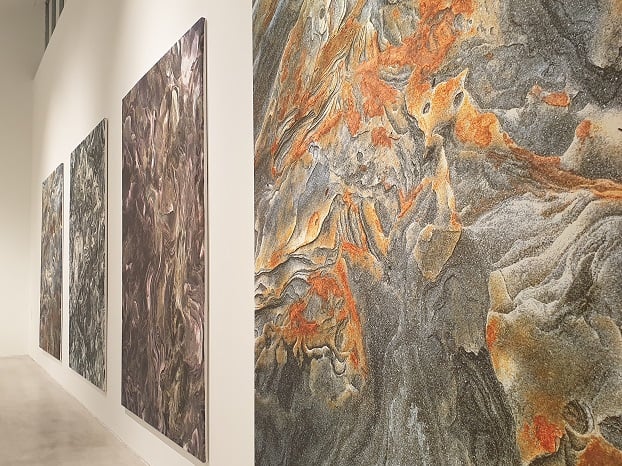
By Dan Thompson
Ingrid Pollard’s new exhibition at Turner Contemporary opens this weekend, and in a show full of layers of landscape, different interpretations, and complex histories she never forgets to make things that are beautiful.
You could easily just admire the craft of this show. A line of portrait photographs mounted on light boxes, a flotilla of (ceramic) paper boats, a trio of crazed machines echoing the movements of a girl in a lenticular photograph and cabinets of handmade books are all beautiful just as objects.
People often say they ‘don’t understand’ modern art. Here, you don’t need to – you can just admire the objects for what they are.
But if you do want to understand, everything in this exhibition also tells complex stories.
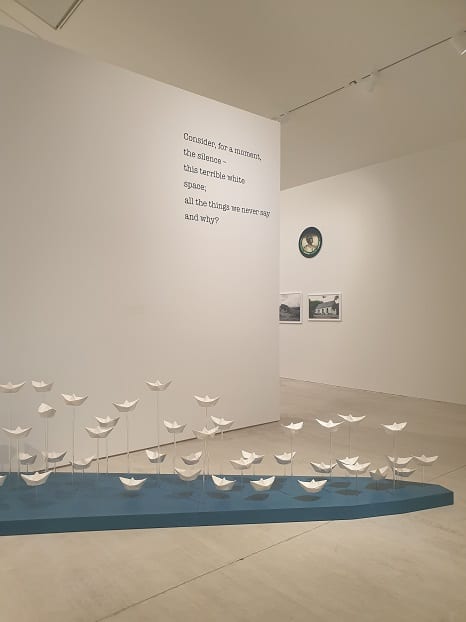
Born in Guyana in 1953, Pollard moved to the UK by the age of four: she is both an immigrant, and absolutely British. She grew up in London, holidayed in the Lake District and Hastings. She now lives in rural Northumberland.
While it would be easy to read her countryside photographs as about being Black in an English landscape, it is really just about that landscape. The English countryside is a construction, made over thousands of years by acts like deforestation, by landscaping, and through the enclosure of land for farming. Pollard’s photographs help us to think about how the landscape, which we see as wild and natural, is made. There have been Black people in the British landscape since the Roman legions came here – showing the idea of only being in an urban environment is just wrong.
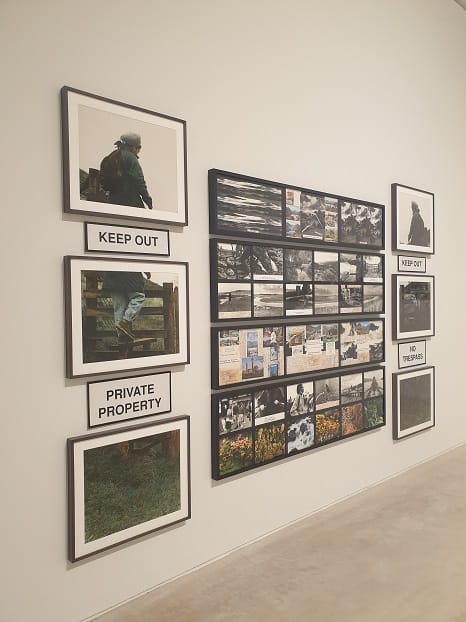
Similarly, Pollard’s seaside work – including the armada of delicate white boats, drifting across the gallery – also look at the place of people in the landscape. One series of photographs captures the light industry of boats on the foreshore, while another is exhibited alongside seaside souvenirs from Hastings, with lines of text reminding us of the history of that town, a place remembered for an invasion.
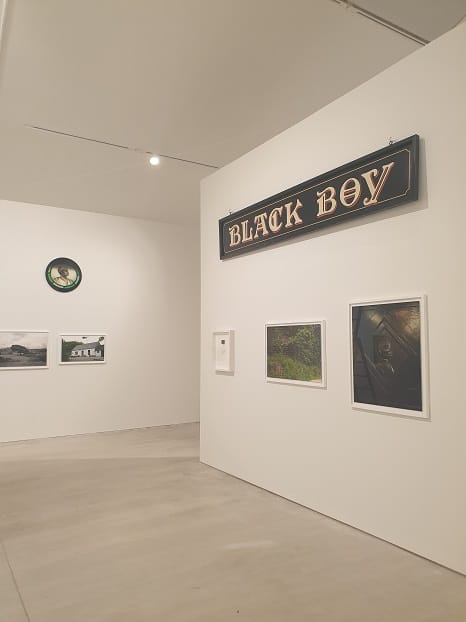
Another collection is more obviously political. From 2005-2008, Pollard researched the name ‘Black Boy’, found in the landscape, marking roads, and as a pub name across the UK. She has collected objects, text, and photographs and presents them alongside a series of debossed prints, mere shadowy traces on white paper. It’s a powerful body of research, which makes its point eloquently.
Sometimes, when visiting a show at Turner Contemporary, it feels as if you’re seeing an artist wrestling with an idea. In other shows, you get to see an artist who’s already done the thinking and has come to some interesting conclusions.
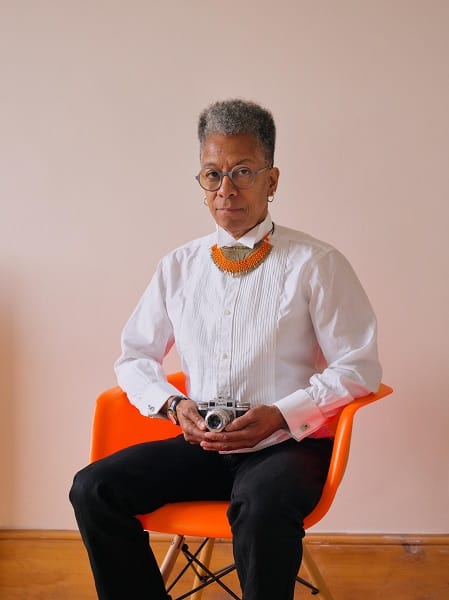
Ingrid Pollard’s retrospective shows she’s has thought about complex ideas of Englishness and migration for 40 years. And she’s happy to present the evidence she’s found and let us come to our own conclusions.
Ingrid Pollard: Carbon Slowly Turning is at Turner Contemporary from July 9– September 25. Entry is free.
The Portfolio Collection from Turner Contemporary’s annual art competition celebrating local children and young adult talent from schools, colleges and community groups across Kent and Medway also opens on July 9.
This year’s theme is Belonging, inspired by the work of Pollard, and Turner Contemporary has collaborated with People Dem Collective to select the chosen works.
People Dem Collective is a community organisation based in Margate, founded by members of the Black, Brown and Diaspora communities.
The Lived Experience Crew is an advisory board with representation across generations, gender, sexuality, ethnicity, class, education, profession, neurodiversity, and physical ability.
The crew say: “As a collective we delved deep into what Belonging meant to us, how it made us feel, how it showed up in our respective lives, and quickly discovered it was vast and complicated. We realised no aspects of our lives were untouched by its effects.
“Belonging is a multi-faceted, moving, living, breathing, concept. It spans beauty, pain, love and rejection, and everything in between.
We hope you enjoy our selection, and that it provokes you to think about your own sense of belonging, and that of the people you meet but do not know.”
The Portfolio Collection will be displayed in the Clore Learning Studio from July 9- September 25.

